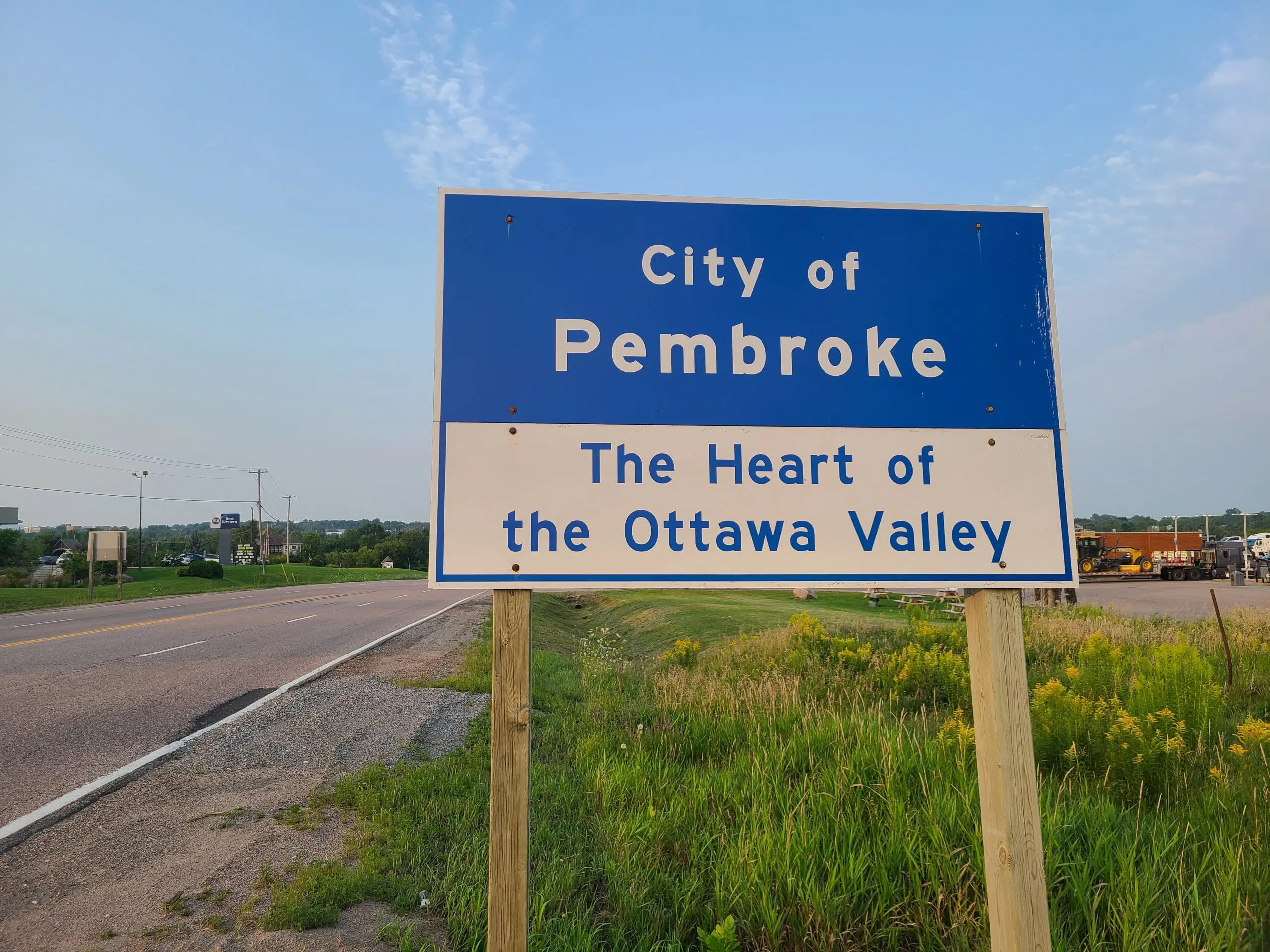
Chief Grant Tysick of the Kinounchepirini, a non-status Algonquin community in the Pembroke area, is looking for recognition.
Tysick tells myFM his community has spent most of their time in a courtroom instead of at the constitution table.
There are ten communities who are involved in the Algonquin Land Claim, however Tysick claims all of them except the Algonquins of Pikwakanagan are “fronts” that were created for the purpose of negotiating.
The Algonquin Land Claim, if successful will become the provinces first modern day constitutionally protected treaty.
Algonquin Land Claim Chief Negotiator Doug Carr tells myFM the claim was submitted in the mid-1980s and covers 36,000 square kilometers in eastern Ontario.
Carr says if the land claim is successful it will include a financial settlement, transfer of crown lands along with rights to harvest fish and wildlife.
People of Algonquin descent in the land claim territory are represented by ten communities, which make up the Algonquins of Ontario.
The Algonquins of Ontario are represented by the following communities:
- the Algonquins of Pikwakanagan First Nation
- Antoine
- Bonnechere
- Greater Golden Lake
- Kijicho Manito Madaouskarini (Bancroft)
- Mattawa/North Bay
- Ottawa
- Shabot Obaadjiwan (Sharbot Lake)
- Snimikobi (Ardoch)
- Whitney and area
Chief Tysick with the Kinounchepirini non-status Algonquin community says late in 2019, roughly 8,000 to 10,000 people were removed from the Algonquins of Ontario communities because they can’t prove their Algonquin heritage.
Tysick adds these people were used as numbers to help advance the land claim and now don’t meet the criteria after years in negotiations.
Chief Negotiator Doug Carr says extensive research was done to figure out not only who’s Indigenous and who isn’t, but who has rights to the land claim and who doesn’t.
Carr tells myFM it wouldn’t be fair to leave people out, but adds it’s also not fair to be over inclusive and include people who don’t have rights to the land claim.
The Chief Negotiator for the Algonquin Land Claim suggests those with Algonquin heritage who are not part of the ten communities that make up the Algonquins of Ontario should reach out to the recognized communities and see whether they might be eligible to join.
Carr says the final agreement would see over 200 parcels of land, with no land from Algonquin Park, transferred to the Algonquins of Ontario.
Under the Agreement-in-Principle, land will not be expropriated from private owners, no one will lose existing access to their cottages or private property, no one will lose access to navigable waterways, no new First Nation reserves will be created, approximately 4% of the Crown land in the claim area is proposed for transfer, the vast majority of the Crown land base will remain open to all existing uses, and after transfer, Algonquin lands will be subject to municipal jurisdictions, including the same land use planning and development approvals and authorities as other private lands.
The land transfers are also expected to restore historically significant sites to the Algonquins, contribute to the social and cultural objectives of Algonquin communities and provide a foundation for economic development for the region.
Carr says the land transfers would take place over a number of years and the goal is to benefit the Algonquins and everyone across the Ottawa Valley.
The Chief Negotiator for the Algonquin Land Claim says they hope to conclude negotiations by 2024.
Afterwards the agreement will need a community ratification vote and to go through parliament before becoming law and a treaty that’s protected by the constitution.
Earlier this year (2021), history was made when the County of Renfrew committed to making efforts of truth and reconciliation with Indigenous Peoples.
All members of county council voted unanimously to act on recommendation #57 from the Truth and Reconciliation Commission of Canada, which calls for professional training and education for public servants on the history of Indigenous Peoples in Canada.
Warden Debbie Robinson says the County of Renfrew is looking to better their relationship with Indigenous Peoples.
A reconciliation garden is also in the works on the grounds of the administration building in Pembroke.
Warden Robinson hopes the project can get started in 2022 and adds they will be reaching out to the Algonquins of Ontario for feedback and guidance.
PREVIOUS STORY:
Renfrew County takes first steps towards Truth and Reconciliation

